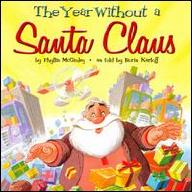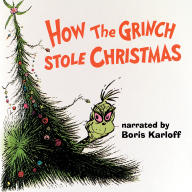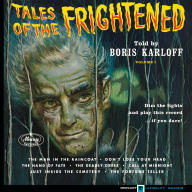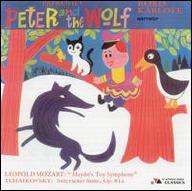Karloff's first sound-era role was in the 1929 melodrama #The Unholy Night, but he continued to languish without any kind of notice, remaining so anonymous even within the film industry itself that -Picturegoer magazine credited #1931'sThe Criminal Code as his first film performance. The picture, a Columbia production, became his first significant hit, and soon Karloff was an in-demand character actor in projects ranging from the Wheeler & Woolsey comedy #Cracked Nuts to the Edward G. Robinson vehicle #Five Star Final to the serial adventure #King of the Wild. Meanwhile, at Universal Studios, plans were underway to adapt the Mary Shelley classic #Frankenstein in the wake of the studio's massive Bela Lugosi hit, #Dracula. Lugosi, however, rejected the role of the monster, opting instead to attach his name to a project titled #Quasimodo which ultimately went unproduced. Karloff, on the Universal lot shooting 1931's #Graft, was soon tapped by director James Whale to replace Lugosi as Dr. Frankenstein's monstrous creation, and with the aid of the studio's make-up and effects unit, he entered into his definitive role, becoming an overnight superstar.
Touted as the natural successor to Lon Chaney, Karloff was signed by Universal to a seven-year contract, but first he needed to fulfill his prior commitments and exited to appear in films including the Howard Hawks classic #Scarface and #Business or Pleasure. Upon returning to the Universal stable, he portrayed himself in 1932's #The Cohens and Kellys in Hollywood before starring as a nightclub owner in #Night World. However, Karloff soon reverted to type, starring in the title role in 1932's #The Mummy, followed by a turn as a deaf-mute killer in Whale's superb #The Old Dark House. On loan to MGM, he essayed the titular evildoer in #The Mask of Fu Manchu, but on his return to Universal, he demanded a bigger salary, at which point the studio dropped him. Karloff then journeyed back to Britain, where he starred in 1933's #The Ghoul, before coming back to Hollywood to appear in John Ford's 1934 effort #The Lost Patrol. After making amends with Universal, he co-starred with Lugosi in #The Black Cat, the first of several pairings for the two actors, and in 1936 he starred in the stellar sequel #The Bride of Frankenstein.
Karloff spent the remainder of the '30s continuing to work at an incredible pace, but the quality of his films, the vast majority of them B-list productions, began to taper off dramatically; finally, in 1941 he began a three-year theatrical run in Arsenic and Old Lace before returning to Hollywood to star in the A-list production The Climax. Again, however, Karloff soon found himself consigned to poverty row efforts, such as 1945's #The House of Frankenstein; he also found himself at RKO under Val Lewton's legendary horror unit. A few of his films were more distinguished -- he appeared in #The Secret Life of Walter Mitty, #Unconquered, and even #Abbott and Costello Meet the Killer -- and in 1948, he starred on Broadway in J.B. Priestley's The Linden Tree, but by and large, Karloff delivered strong performances in weak projects. By the mid-'50s, he was a familiar presence on television, and from 1956 to 1958 hosted his own series; by the following decade, he was a fixture at Roger Corman's American International Pictures. In 1969, Karloff appeared in Peter Bogdanovich's #Targets, a smart, sensitive tale in which he portrayed an aging horror film star; the role proved a perfect epitaph -- he died on February 2, 1969. ~ Jason Ankeny, Rovi
















